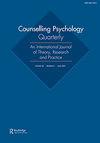Failure in psychotherapy: a qualitative comparative study from the perspective of patients diagnosed with depression
IF 1.5
Q3 PSYCHOLOGY, APPLIED
引用次数: 1
Abstract
ABSTRACT This qualitative study’s objective was to understand how failure in psychotherapy develops from depressed patients’ perspective. Forty-seven patients were interviewed after brief psychotherapy. Data analysis was conducted according to Grounded Theory. Patients evaluated their own psychotherapies’ outcome according to their subjective criteria. Then, negative, positive and mixed-results evaluations were compared in the main categories. Results showed that patients reporting negative evaluations considered null or adverse outcomes as failure. Distrust in their psychotherapists (both as persons and professionals) developed in early stages of the process and was apparently hard to revert. This early onset of distrust led patients to a lack of collaboration and an unreceptive attitude. They perceived their psychotherapist as not understanding, distant, and uninterested, losing focus on relevant problems and not providing new information. The relationship was experienced as uncomfortable and distant, and sometimes became harmful. Therefore, distrust led patients to regard their psychotherapies as an unhelpful experience, in contrast to what occurred in patients with positive or mixed results evaluations. Conclusions contribute to a clarification of how patients conceptualize failure and suggest reevaluating the relevance of their perspective, which seems not to be fully reflected in current outcome measures. Clinicians should consider building trust as a baseline and encourage patients to disclose even the earliest negative feelings about treatment and psychotherapist心理治疗失败:抑郁症患者视角的定性比较研究
本定性研究的目的是从抑郁症患者的角度了解心理治疗失败是如何发展的。47名患者在接受简短的心理治疗后接受了采访。根据扎根理论进行数据分析。患者根据自己的主观标准评估自己的心理治疗效果。然后,在主要类别中比较消极、积极和混合结果评价。结果显示,报告阴性评价的患者认为无效或不良结果为失败。在治疗的早期阶段,他们对心理治疗师(无论是个人还是专业人士)产生了不信任,显然很难恢复。这种早期的不信任导致患者缺乏合作和不接受的态度。他们认为他们的心理治疗师不理解、疏远、不感兴趣,失去了对相关问题的关注,也没有提供新的信息。这种关系让人感到不舒服和疏远,有时甚至变得有害。因此,不信任导致患者将他们的心理治疗视为一种无益的经历,而与此形成对比的是,结果评估为积极或好坏参半的患者的情况。结论有助于澄清患者如何概念化失败,并建议重新评估他们观点的相关性,这似乎没有完全反映在当前的结果测量中。临床医生应该考虑建立信任作为基线,并鼓励患者披露甚至最早对治疗和心理治疗师的负面感受
本文章由计算机程序翻译,如有差异,请以英文原文为准。
求助全文
约1分钟内获得全文
求助全文
来源期刊

Counselling Psychology Quarterly
PSYCHOLOGY, APPLIED-
CiteScore
6.20
自引率
6.70%
发文量
30
期刊介绍:
Counselling Psychology Quarterly is an international interdisciplinary journal, reporting on practice, research and theory. The journal is particularly keen to encourage and publish papers which will be of immediate practical relevance to counselling, clinical, occupational, health and medical psychologists throughout the world. Original, independently refereed contributions will be included on practice, research and theory - and especially articles which integrate these three areas - from whatever methodological or theoretical standpoint. The journal will also include international peer review commentaries on major issues.
 求助内容:
求助内容: 应助结果提醒方式:
应助结果提醒方式:


